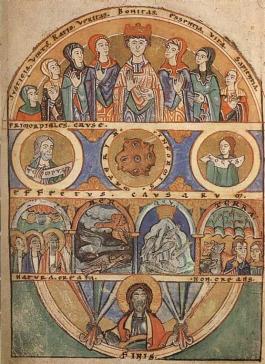This research project focuses on the notion of prime matter, especially in consideration of premodern discussions of matter theories in philosophy and science. Following Aristotle, metaphysicians postulated the existence of an unqualified prime matter whose traits are non-resolvable into the qualifications of a “materiality” that natural philosophy and science usually ascribe to material things. The discrepancy between the concepts of matter and materiality is a meaningful thread which led to key adjustments and a later abandonment of matter theories based on Aristotle in the early modern period. The project hypothesis is that central epistemological reasons were behind this detachment from prime matter.
The project asks how medieval thinkers dealt with the problem of manipulation and experience of matter per se. Images and shadows of matter and materiality permeate many aspects of the medieval reflection on natural philosophy and natural sciences. A most meaningful aspect of this centrality of the material element is the elaboration of theories positing, implicitly or explicitly, a possibility of manipulating the material in order to perfect its matter. A specific feature of alchemical and philosophical reflections, the idea of a material manipulation raises a fundamental ontological question: Is a reduction to prime matter possible? And if it is, what sort of physical experience and epistemic access does it entail?

